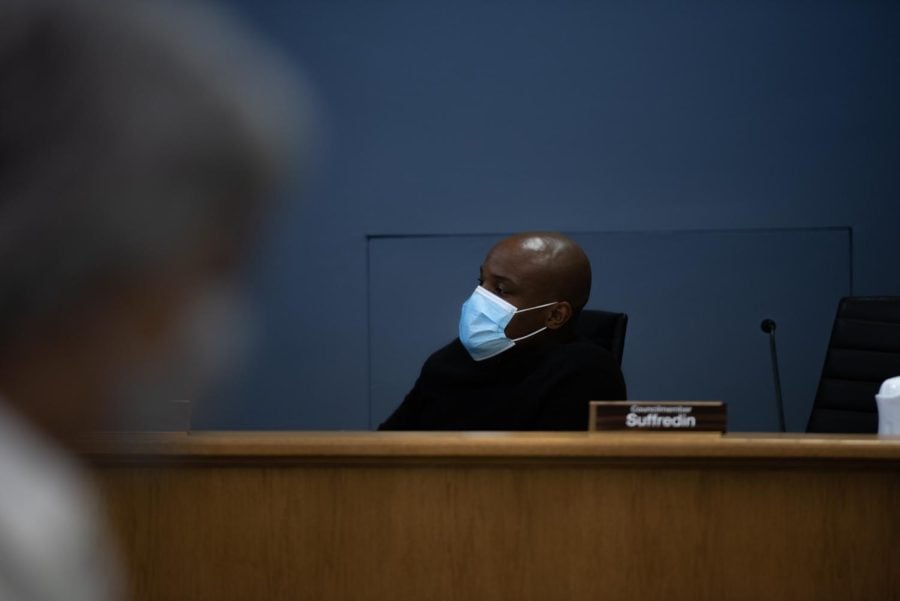Reparations Committee discusses prioritization and selection process for Restorative Housing Program
Daily file photo by Nick Francis
Ald. Bobby Burns (5th). The councilmember said he supports a visual selection procedure so community members can be sure the reparations payment process is transparent.
October 14, 2021
Evanston’s Reparations Committee met last Thursday to discuss the prioritization and random selection of beneficiaries for the Restorative Housing Program, which has received more than 146 applicants since it opened on Sept. 21.
Deputy City Manager Kimberly Richardson shared the updated application numbers at the committee’s meeting. Out of the applications received, there is demographic data available for 107 applications through Sept. 30.
Of those 107 applications, 77 are from residents claiming direct descendant status, 29 are from residents of ancestor status and one application did not claim a specific qualification. While formal verification hasn’t started yet, Richardson said the city manager’s office has started reaching out to applicants whose documentation appears incomplete.
“You can tell when something’s missing,” Richardson said. “We’ve followed up with an email or a phone call so they can provide that documentation, and the majority have followed through.”
The committee will meet on Nov. 11 to approve a final list of eligible beneficiaries after the application window closes on Nov. 5. Non-applicants will then be permanently locked out of the Restorative Housing Program, but all residents can still apply for any future programs.
While only 16 residents will receive the initial distribution, the program is intended to eventually deliver payments to all qualifiers, pending future approvals from the council.
Once the final list of beneficiaries is approved, they will be separated by qualification category. Ancestors will be prioritized, followed by direct descendants and then those who experienced housing discrimination from city policy after 1969.
Richardson said this prioritization was chosen so ancestors could benefit first from the limited initial budget. All ancestors will be given payments before the committee will move on to the next eligible group.
“We’re going to City Council with a full budget saying, ‘Here’s how many individuals actually qualify for the program,’” Richardson said. “But we also know that funding is not going to be readily available, because we only have one dispensary right now.”
Committee members discussed the possible forms the process of ordering beneficiaries in each group randomly and anonymously could take.
Ald. Bobby Burns (5th) said he supports a visual selection akin to pulling randomly from a bingo cage so community members can be sure the process is transparent. But he cautioned against using wording that may suggest tipping or fixing of the selection process.
“In political elections, they use visuals all the time to make random selections,” Burns said. “As long as we call it a random selection process instead of a lottery, we will be fine.”
Once the order of beneficiaries is determined, the first 16 ancestors will be notified by mail between Dec. 1 and 6. Future payments to the remaining ancestors and the other two categories will depend on a future budget allocation from City Council.
Committee member Claire McFarland Barber thanked Richardson for her work outlining the program and assisting applicants during information sessions and in-person office hours.
“This is complicated, and you’ve made it seem simple,” McFarland Barber said. “You’ve brought down a lot of barriers and that’s not a simple thing to do.”
The next Reparations Committee meeting is scheduled for Nov. 4, one day before the application closes.
Email: [email protected]
Twitter: @alexhairysun
Related Stories:
— City opens application for first reparations payments
— City Council approves community members to Reparations Committee
— National nonprofit offers cash payments to Evanston reparations qualifiers


